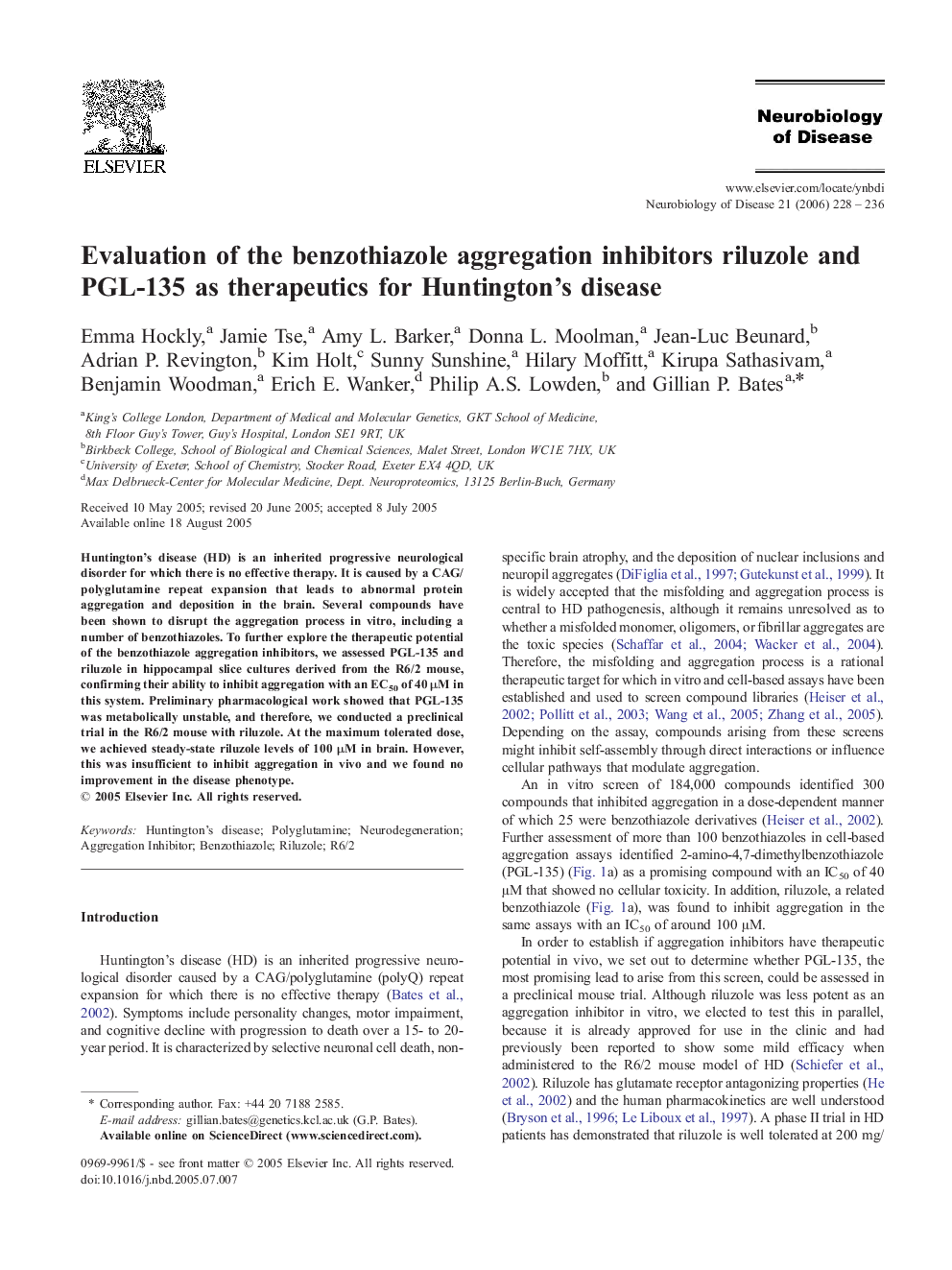| Article ID | Journal | Published Year | Pages | File Type |
|---|---|---|---|---|
| 3071131 | Neurobiology of Disease | 2006 | 9 Pages |
Huntington's disease (HD) is an inherited progressive neurological disorder for which there is no effective therapy. It is caused by a CAG/polyglutamine repeat expansion that leads to abnormal protein aggregation and deposition in the brain. Several compounds have been shown to disrupt the aggregation process in vitro, including a number of benzothiazoles. To further explore the therapeutic potential of the benzothiazole aggregation inhibitors, we assessed PGL-135 and riluzole in hippocampal slice cultures derived from the R6/2 mouse, confirming their ability to inhibit aggregation with an EC50 of 40 μM in this system. Preliminary pharmacological work showed that PGL-135 was metabolically unstable, and therefore, we conducted a preclinical trial in the R6/2 mouse with riluzole. At the maximum tolerated dose, we achieved steady-state riluzole levels of 100 μM in brain. However, this was insufficient to inhibit aggregation in vivo and we found no improvement in the disease phenotype.
